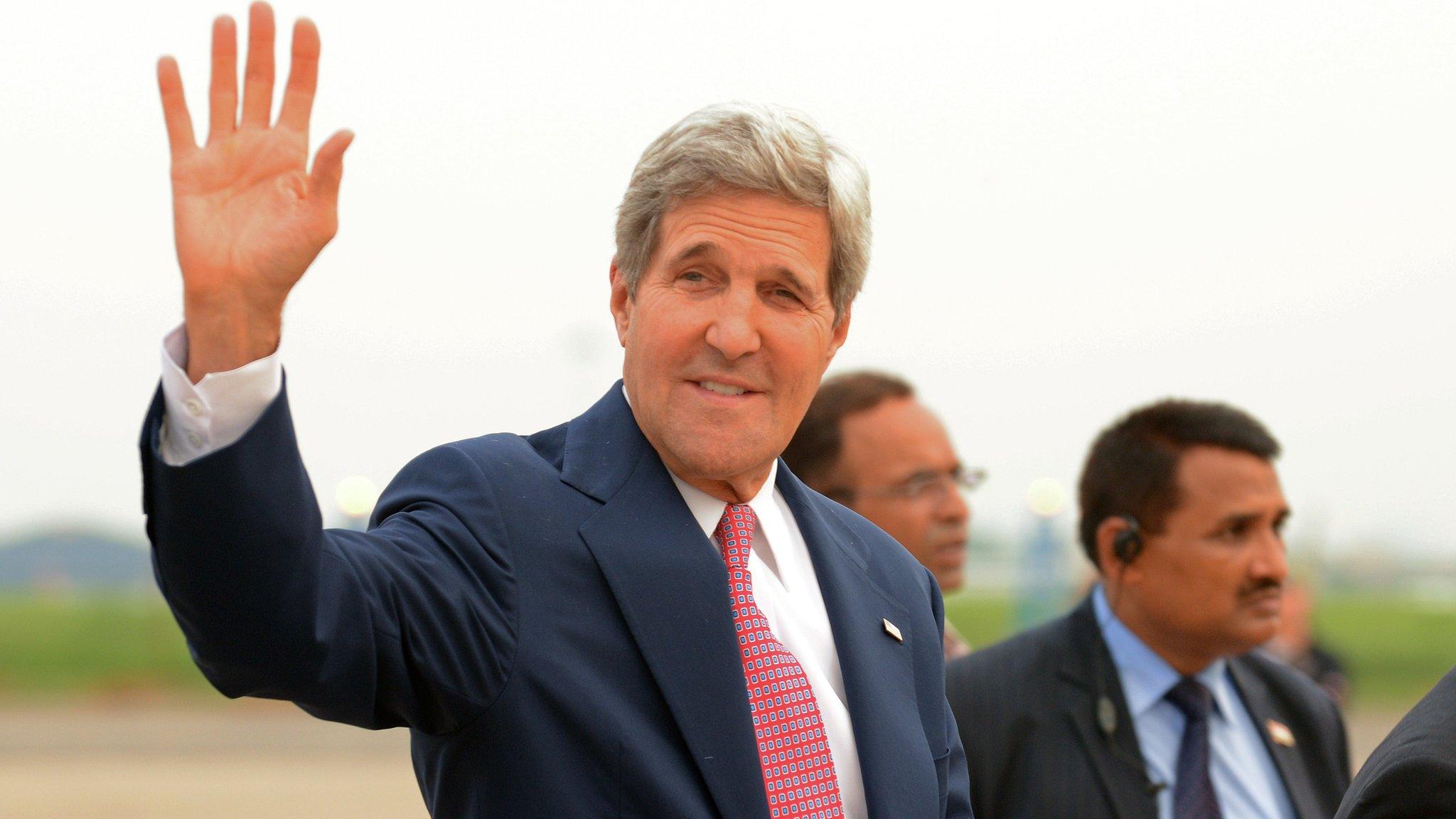Will Narendra Modi's visit boost India-US ties?
- Published
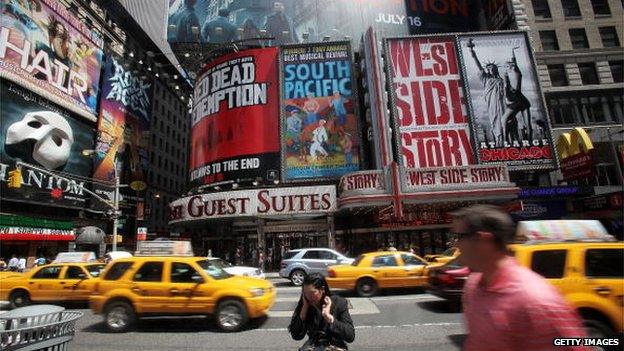
Mr Modi's speech will be beamed live to New York's Times Square
When Indian Prime Minister Narendra Modi takes the stage at New York's Madison Square Garden on Sunday to address an audience of more than 20,000 people, it will be the highlight of his maiden visit to the US.
The sell-out event, organised by prominent members of the Indian diaspora in the US and presented by Indian American former Miss America Nina Davuluri, has all the trappings of a rock concert - after all, the venue is justly famous for hosting the likes of the Rolling Stones, Elvis Presley and Sir Elton John.
Mr Modi's speech from a rotating stage will be beamed live with English subtitles to giant TV screens at Times Square in central New York. People can also call a toll-free number and listen to the speech.
With a population of 3.2 million, Indian Americans are the third largest group among Asian Americans, and comprise 1% of the US population. They are also among the wealthiest communities in the US, and many of their members supported Mr Modi's election in May.
Mr Modi was denied a visa to visit the US for almost a decade, due to the religious riots in his home state Gujarat in 2002. More than 1,000 people, mostly Muslims, were killed in the violence while Mr Modi was the state's chief minister.
Unfulfilled potential
All that, however, changed after his landslide win in the May general election.
During Mr Modi's four-day visit to the US beginning on Saturday, he will also will meet members of the US Congress and dine with President Barack Obama before a more formal bilateral meeting at the White House.
Four years ago, Mr Obama said that the relationship between the two countries would be "one of the defining partnerships of the 21st Century".
But the rhetoric has barely lived up to its potential.
US officials have often expressed frustration at India's failure to play a confident leadership role as an emerging economy and become an effective strategic partner.
The irony, analysts say, is that Mr Modi portrays himself as exactly the kind of confident, ambitious and decisive leader the US would want to be on its side in a rapidly changing world.
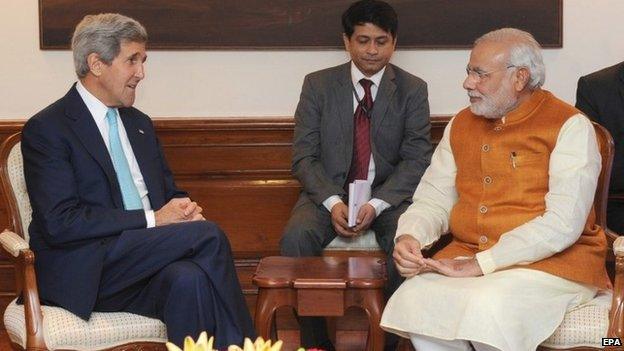
US Secretary of State John Kerry met Mr Modi in Delhi recently
US Secretary of State John Kerry and Defence Secretary Chuck Hagel have made back-to-back visits to Delhi this year and attempted to build a momentum that went seriously missing in the past few years.
Comments have been made to underline the similarities between the world's leading democracy and its biggest one.
"There are few places in the world other than India and the US where the son of a tea-seller in a small time town can rise to be the prime minister or the child of a Kenyan father can rise to be president," Mr Hagel said in Delhi, alluding to the rise of Mr Modi and Mr Obama.
Mr Modi, considered a staunch nationalist, has hinted at putting "country first" and not letting his personal grievances influence the ties.
So when Mr Obama and Mr Modi meet at the White House, what would success look like?
Tanvi Madan, India project director at the Brookings Institute in Washington, says that considering the US's troubled history with Mr Modi, the fact that he is now being greeted with open arms is substantial in itself.
"This visit is not just about substance but also optics," she says.
The US Congress has passed a resolution to mark 30 September as US-India Partnership Day. Last week, Mr Obama named Richard Verma as the next ambassador to India, the first Indian-American to step into that role.
US business leaders, who are expected to meet Mr Modi, are also looking at India with renewed interest as he has promised to slash red tape and spur growth.
"There is a great deal of excitement that the economic relationship is going to be very different than it has been in the past. It is really groundbreaking," says former deputy US trade representative Susan G Esserman.
Serious challenges
Trade between the two countries is close to $100bn (£61bn). Vice-President Joe Biden reckons it has the potential to reach $500bn in the next five years.
But before any of this can become a reality, there are some serious challenges that need to be overcome.
.jpg)
Mr Modi will speak at Madison Square Garden which has hosted the likes of the Rolling Stones
"There is a deficit of trust. We attempted to do some pretty big things with the last government and found unmet expectations," says Richard Rossow of the US-India Policy Studies at the Centre For International and Strategic Studies.
India's refusal to sign a global trade deal, a row over alleged American surveillance on the governing BJP and a diplomatic spat involving an Indian diplomat who was accused of underpaying her housekeeper and lying about it on immigration forms have not helped matters.
Foreign direct investment from the US has also dried up in the recent years and many big names from the US corporate sector have pulled out of India, citing fuzzy and unpredictable regulations.
India has also complained about immigration laws that restrict US companies to hire Indian skilled workers, and has expressed concern about the fallout of the withdrawal of US troops from Afghanistan.
Senator John McCain calls the India-US relationship "a laundry list of initiatives" that has "devolved into a transactional one".
"Too often, we have been overly driven by domestic politics, and overly focussed on extracting concessions from one another, rather than investing in one another's success and defining priorities that can bring clarity and common purpose to our action," said Mr McCain at a recent speech in Washington.
While the underpinnings for the relationship are too strong for either side to ignore, Mr Modi is still a big unknown to the Americans.
Experts say he is the kind of assertive leader who can rebuild this flagging partnership - but Washington will have to cover a lot of ground to win his trust.
- Published1 August 2014
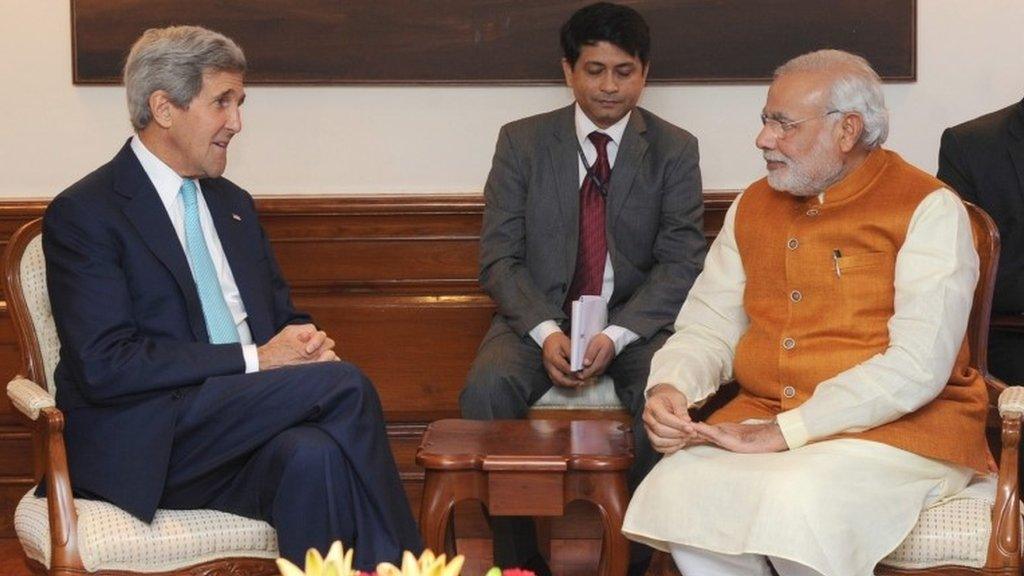
- Published31 July 2014
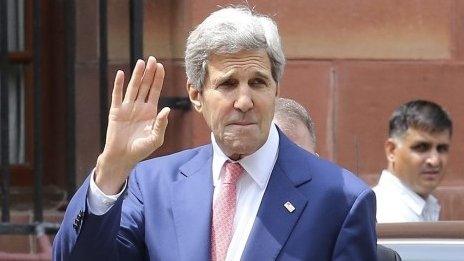
- Published1 August 2014
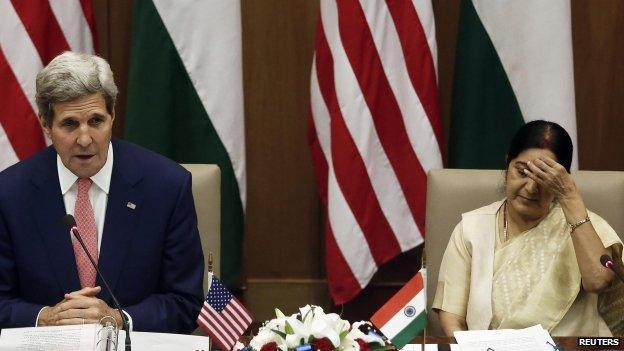
- Published31 July 2014
